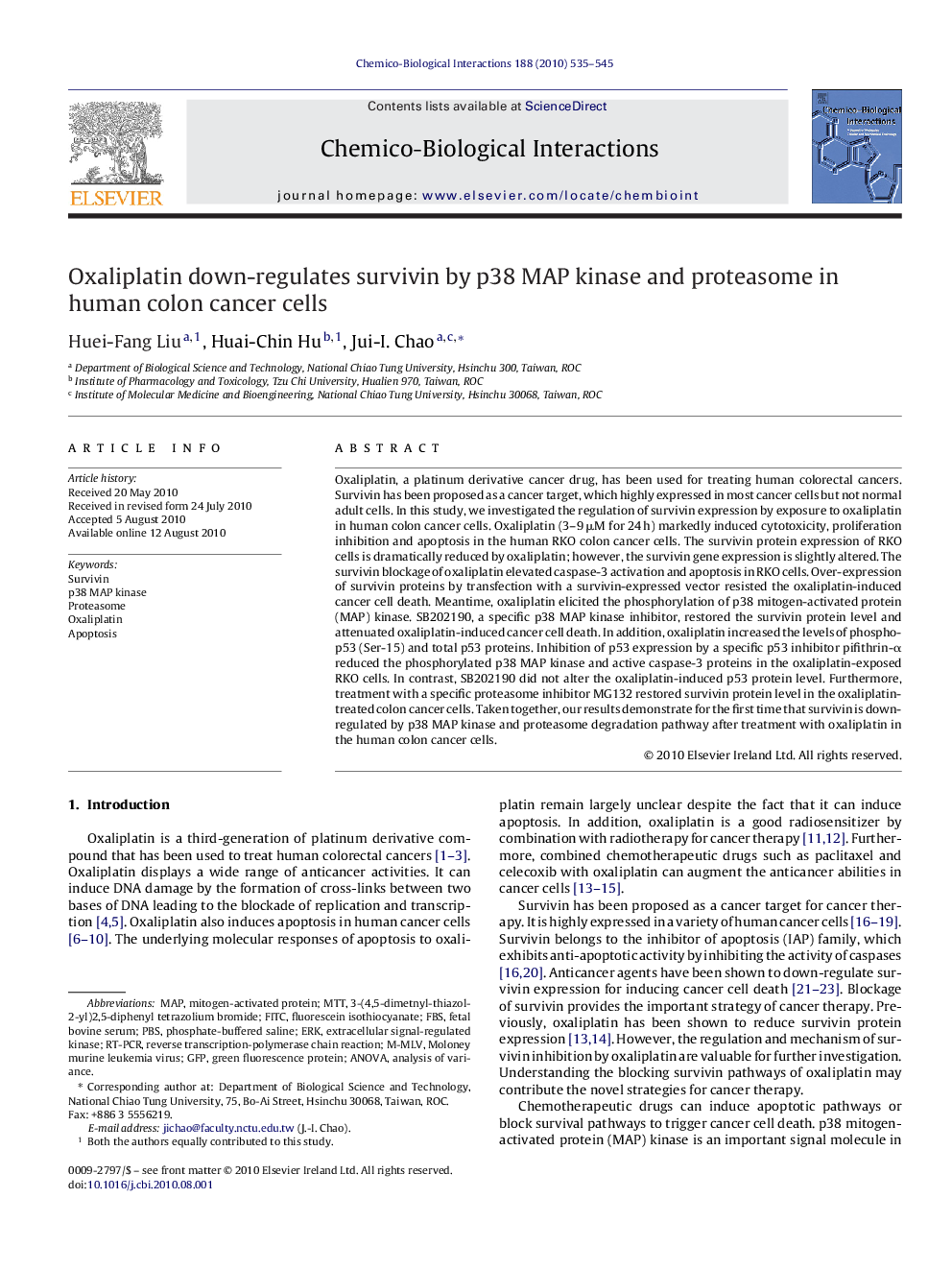| Article ID | Journal | Published Year | Pages | File Type |
|---|---|---|---|---|
| 2580962 | Chemico-Biological Interactions | 2010 | 11 Pages |
Oxaliplatin, a platinum derivative cancer drug, has been used for treating human colorectal cancers. Survivin has been proposed as a cancer target, which highly expressed in most cancer cells but not normal adult cells. In this study, we investigated the regulation of survivin expression by exposure to oxaliplatin in human colon cancer cells. Oxaliplatin (3–9 μM for 24 h) markedly induced cytotoxicity, proliferation inhibition and apoptosis in the human RKO colon cancer cells. The survivin protein expression of RKO cells is dramatically reduced by oxaliplatin; however, the survivin gene expression is slightly altered. The survivin blockage of oxaliplatin elevated caspase-3 activation and apoptosis in RKO cells. Over-expression of survivin proteins by transfection with a survivin-expressed vector resisted the oxaliplatin-induced cancer cell death. Meantime, oxaliplatin elicited the phosphorylation of p38 mitogen-activated protein (MAP) kinase. SB202190, a specific p38 MAP kinase inhibitor, restored the survivin protein level and attenuated oxaliplatin-induced cancer cell death. In addition, oxaliplatin increased the levels of phospho-p53 (Ser-15) and total p53 proteins. Inhibition of p53 expression by a specific p53 inhibitor pifithrin-α reduced the phosphorylated p38 MAP kinase and active caspase-3 proteins in the oxaliplatin-exposed RKO cells. In contrast, SB202190 did not alter the oxaliplatin-induced p53 protein level. Furthermore, treatment with a specific proteasome inhibitor MG132 restored survivin protein level in the oxaliplatin-treated colon cancer cells. Taken together, our results demonstrate for the first time that survivin is down-regulated by p38 MAP kinase and proteasome degradation pathway after treatment with oxaliplatin in the human colon cancer cells.
